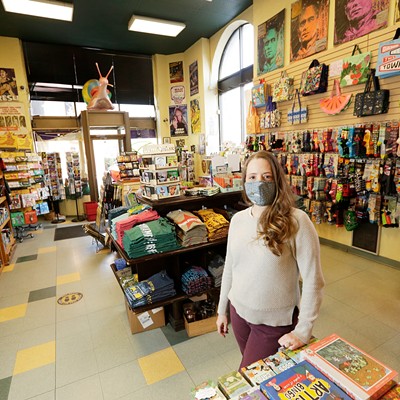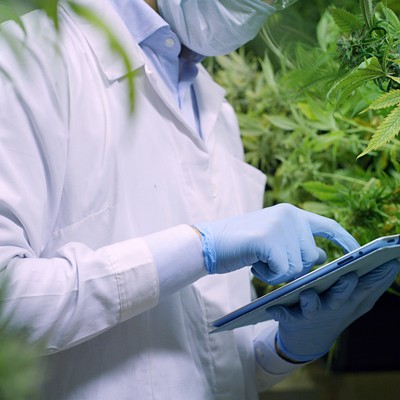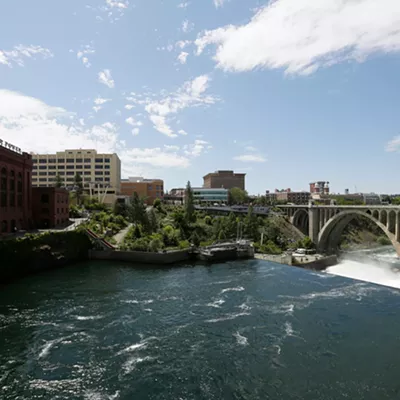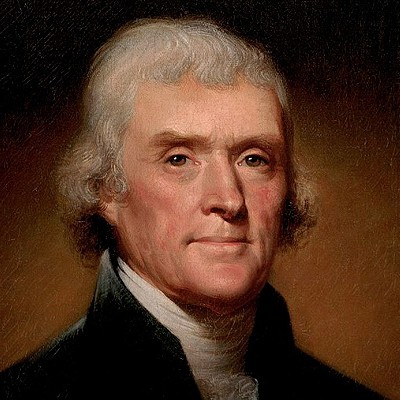Never, in our lifetime, has society collectively and simultaneously experienced this extent of discretionary time due to the COVID-19 pandemic. As faculty members of the Recreation and Leisure Services Program at Eastern Washington University, we strive not only to teach the value of recreation and leisure for society, but to inspire a recreation and leisure lifestyle for our students. To that end, we role model how recreation and leisure promotes health and well-being while reducing anxiety and stress. We encourage our students to step away from school/work obligations in order to embrace their recreation and leisure pursuits, and thus, develop essential skills and ethics to guide them during their professional career and throughout their personal life. However, recreation and leisure is important for everyone. And this pandemic may have created a social situation where recreation and leisure are at the core of our daily living due to the discretionary time available.
How do we pull something positive from something so negative?
tweet this
Even for those fortunate enough to be able to work from home, this “new normal” — removed from social obligations that previously filled our workdays and weekends — presents both an opportunity and a crisis. Michelle White, PhD, a clinical psychologist and neuropsychologist practicing in the Spokane Valley, states that the COVID-19 viral pandemic has resulted in a financial crisis followed by a psychological crisis. The psychological crisis actually started even before the financial crisis, though with much less news coverage. This psychological crisis has persisted throughout the pandemic, now necessitating considerable intervention and conscious action to cope. Intervention and action that will require resilience, creativity, and flexibility. White recommends we focus on our resiliency to thrive in these times of crisis and loss, to think outside the box and find ways to create certainty in the midst of uncertainty. White states that for the intervention and action to be effective, it will require us to recognize the importance of healthy physical, emotional, mental, and social outlets. This need for resiliency and creative, flexible interventions begs the question, “Are we, as a community, ready for the psychological front of this pandemic?”
Finding creative and flexible coping opportunities that offer healthy physical, emotional, mental, and social outlets may be easier than we think. Recreation and leisure pursuits have long offered an imaginative, outside-the-box approach to functional change — including the positive psychological benefits we, as a society, are in need of as a result of the lifestyle changes precipitated by the COVID-19 pandemic. For years researchers have studied the impact of recreation and leisure experiences on physical, social, emotional, and cognitive functioning. An entire profession (Therapeutic Recreation) exists around structuring recreational experiences as specific treatments to address clinical needs; but especially during stressful periods, it is important to acknowledge the role personal recreation and leisure pursuits can play in our ability to cope. Studies have shown that recreation and leisure can play an important role in facilitating effective coping and adjustment following negative life events. Recreation and leisure activities can serve as a distraction, create optimism about the future, provide a way to get back to “normal,” or allow for a better understanding of self. Each of these roles are evident in the many ways Spokane as a community has been dealing with this crisis.
We have noticed many changes in recreation and leisure behaviors during the pandemic for ourselves, our students, and also our community. We (as faculty) have had to redefine and modify some of our recreation and leisure behaviors to account for social distancing, shelter in place, lack of childcare, and changes to our daily schedule. For example, family leisure now has us recreating not only closer to home but within the home much more than before the pandemic. Many students have lost their jobs and no longer receive the social interaction that face-to-face classes provided. Many of the locations and activities students would use to recreate, such as recreation centers, climbing gyms, intramural sports, or Washington state parks, are no longer available. Students have also had to adjust their recreation and leisure patterns in order to overcome some of these obstacles while simultaneously receiving the benefits that recreation brings. Our community has also made adjustments to their recreation and leisure behaviors as well, all while embodying who we are as a community and a region.
Spokane is an active town and made up of people who value their recreation and leisure pursuits. We live in a gorgeous area with access to a lot of recreation opportunities. Activities such as walking, running, hiking, and cycling were prevalent in our community even before the word “pandemic” became a part of our daily language. Add to this mix, opportunities for winter sports such as skiing, summer activities on our local lakes and rivers, and access to a whole host of parks and natural areas, and one might say we live in paradise. The Inland Northwest is one of the last best kept secrets, but our lives were turned upside down with the onset of the coronavirus pandemic. With not much to do, many people have focused on new pursuits, have resurrected old interests, or have headed outdoors. Our observation is that we are witnessing a remarkable time with respect to recreation and leisure participation and how people are using it to cope in a time of crisis.
People are getting outside and engaging in outdoor recreation at unprecedented levels in Spokane. Trailheads are full with hikers, runners, and dog walkers. The roads and trails are busy with cyclists and our natural areas and parks are filled to capacity on almost a daily basis. Entire families are taking walks throughout their neighborhoods just to get outside of the home. The focus on health and movement during this time of crisis is encouraging. It also seems that people are paying attention to social distancing rules, for the most part.
This trend has not only caught our attention, but also others who work within the industry. According to the national organization, “Leave No Trace” (LNT) and Pennsylvania State University, recreationists are staying closer to home. Almost 50 percent of the people surveyed in their study indicated that they are traveling less than two miles from their home in order to get outside and move, whereas prior to the pandemic only 11 percent stayed within this range. Many people are doing their activities solo and limiting group experiences. Many people are making adjustments to their recreation activities and engaging in more activities such as wildlife watching, gardening, and biking. Last, and perhaps most encouraging, 37 percent of respondents indicate that the COVID-19 pandemic will more than likely change their outdoor recreation and fitness behaviors long into the future.
Outdoor recreation is not the only area where we have seen increased community activity. Families are doing more together and reconnecting as a result of the pandemic. Parents are spending more time with their children and children more time with their parents. New traditions and activities are being created out of necessity, such as Friday night dance parties or Tuesday night game night. Creative solutions to keeping toddlers busy, happy, and engaged are being learned by all parents. Friends and social groups are also finding creative ways to stay in contact, whether it is a Zoom “happy hour,” a quick Facetime chat, or a drive-by hello. People are craving social connections and they are finding creative ways to safely fulfill this need.
We are also seeing renewed interest in leisure pursuits and hobbies such as art, poetry, reading, writing, gardening, bird watching, and playing music. Multiple news releases have shown long forgotten hobbies, such as building train sets and model airplanes, that have been revived by parents and their children. New hobbies have also seen an increase. Opportunities such as Fender.com/play, where people can learn to play the guitar on-line, for free, are becoming quite popular.
Other local, state, and federal agencies have also been creative in the recreation programming they offer. The Spokane Parks and Recreation Department provides guidance on activities that can be done from home, for both kids and adults. For example, their homepage advertises guides to lawn games, at-home Easter activities for the kids, and backyard birding. Recently, the Washington State Parks hosted a virtual ranger-led campfire program for families and children. The federal government provides the opportunity to “get away” with a virtual vacation and resources to bring outdoor activities into the home via their website, Recreation.org.
The COVID-19 pandemic has brought unprecedented loss and change to our daily lives. How do we pull something positive from something so negative? If there is a glimpse of light in the dark cloud that overshadows our lives right now, and if so, where and what is that silver lining?
We believe recreation and leisure have the power to change lives and change communities in a positive way. The pandemic has changed the patterns of our daily lives and introduced an amount of discretionary time we have never had prior. People are participating in family leisure at an unprecedented rate and doing activities together as a family they would not have prior. Others are visiting new outdoor locations, albeit close to home, that they probably would not have visited otherwise. People are being creative and learning new forms of recreation and leisure or learning new ways to socialize with friends and loved ones. Through this challenge and this change, we hope that you are able to find resiliency, creativity, and a way to cope during this time of crisis and beyond. ♦
Dr. Jeremy Jostad is an Assistant Professor of Outdoor Recreation Leadership at Eastern Washington University. Dr. Emily Messina is an Associate Professor of Therapeutic Recreation at Eastern Washington University and a Certified Therapeutic Recreation Specialist (CTRS). Dr. Matt Chase is a Professor of Recreation and Tourism Management at Eastern Washington University.





















